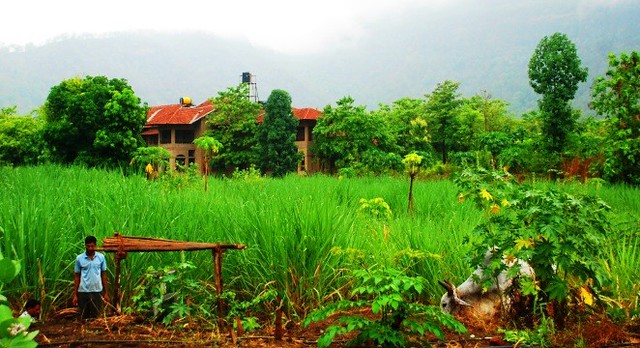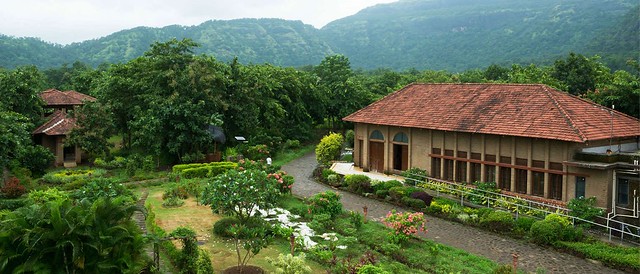“Forget oil, the new
global crisis is food”, this was a news headline covered this year. UN is
trying to solve out food crisis through various measures. People are slowly
realizing the actual importance of production of organic crop. Modern farming
and dairy methods have contributed to wreaking havoc on the eco-system. Today
agriculture, which provides the sustenance of human society, is massively
dependent on oil and chemical fertilizers. Though initially increasing yield in
initial years, these chemicals have proved detrimental to the fertility of
soil, sometimes leaving it toxic and unproductive. Genetically modified crops
bring their own set of ethical and health issues, leading to a world where some
food products are promoted by one government and banned by others.
The basis of all farming
remains dependent on nature in form of soil, air and water. Establishing
farming methods in harmony with nature can provide long term sustainability.
Otherwise, experts tell us, we may be heading towards a global food crisis.
International Society for
Krishna Consciousness (ISKCON), founded by His Divine Grace A.C. Bhaktivedanta
Swami Prabhupada in 1966 at New York, has over 40 eco-villages and farm
communities around the globe based on the principle of respect for all living
beings, in order to promote sustainability and spirituality. Some exist off the
grid, existing entirely on natural energy from water and sun. Others simply
advocate more responsible and natural living based on sustainable care of the
land and the cows. Unlike modern agribusinesses that exploit cows and other animals
for their milk, meat and eggs, ISKCON farms, as per the injunction of the
Vedas, protect cows throughout their full lives, allowing them to live
peacefully even after their milk producing years are over. Vedas have mandated
to keep cow as the central basis of farming. The products received from the cow
- milk, cow dung and urine - are all useful either for direct consumption or
for their use as organic fertilizer or pesticide. Cow’s milk is considered the
most miraculous food which helps in developing the finer tissues of the brain
that helps in understanding the higher purposes of life. It helps one
understand the intricacies of transcendental knowledge. Milk can be transformed
into yogurt, curd, butter, ghee and by combining the milk and milk products
with grains; hundreds of palatable dishes can be prepared. A patient who is
suffering from a disorder of the bowels due to overindulgence in milk products
is cured by another milk product, namely curds. Even the urine and stool of
cows have medicinal value. Cow dung contains all antiseptic properties and is
considered a purifying agent. Cow dung can also be dried and used as fuel.
Young bulls are also moved to the farm and there, these energetic animals are
trained to plough the fields and carry loads (up to the weight they can
comfortably carry) to help in farming activities.
Vedas profess a sweet
transcendental interrelation between all living entities, irrespective of not
only caste, creed, and color between man and man, but between man and beast,
man and birds, man and reptiles, man and plants, etc., and so also between man
and God, and between God and others. As such, the farm to be the center for
such supreme culture of knowledge. It shall set the example that neither God
nor the living being nor Nature is in any way antagonistic toward one another,
but that all of them exist in harmony as a complete whole unit. Helping each
component and creature of nature for mutual benefit, without exploitation, is
the prime concern of Vedic farming. Tiny living entities such as earthworm are
taken as natural decomposers and soil-quality enhancers, and their residence in
soil is promoted.
Vedic farming is not just
production of organic food but practicing a peaceful way of life. Our thoughts
could gaze deep into higher realizations when our mind is not agitated. It is
much simpler way of living, giving higher values to a harmonized society.
-
Collected by Bigyan Raj Satyal




Post A Comment:
0 comments so far,add yours
We value your comments. Let us know your thoughts below!